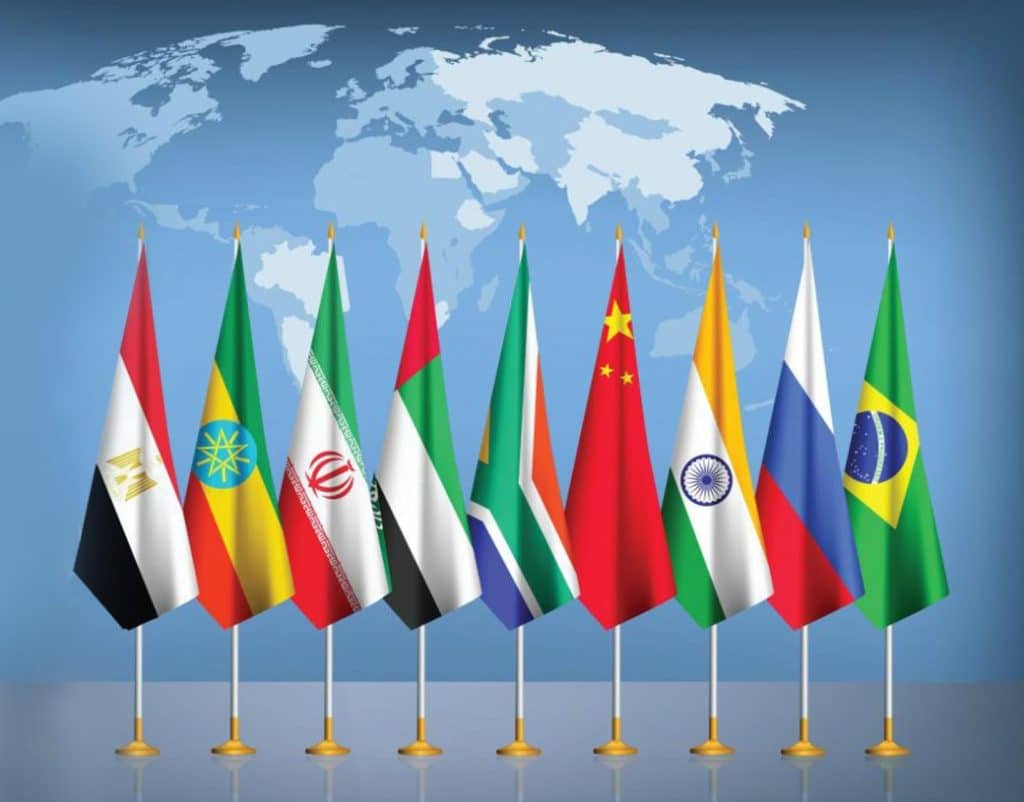The BRICS alliance has recently expanded its global presence by inviting 13 new nations to join as partner countries. This strategic move marks a significant step in the bloc’s ambition to increase its influence across international affairs.
The 2024 BRICS summit has been pivotal, as leaders focus on broadening their reach and furthering their agenda of decreasing dependency on Western economic structures. This expansion includes nations from diverse regions, enhancing the bloc’s diplomatic and economic networks worldwide.
New Partner Nations Announced
In a landmark decision, the BRICS alliance welcomed 13 countries to participate as partner countries, according to a declaration at the recent summit. The countries joining the BRICS alliance as partners are Algeria, Belarus, Bolivia, Cuba, Indonesia, Kazakhstan, Malaysia, Nigeria, Thailand, Turkey, Uganda, Uzbekistan, and Vietnam.
This collaboration aims to cultivate stronger economic ties and political alliances. Each new partner country will engage in selective BRICS activities, paving the way for potential full membership in the future. The precise implications of this status are under vigorous examination by both the existing BRICS members and the newly partnered nations.
Strategic Expansion and Its Motives
The expansion reflects BRICS’ ongoing strategy to counterbalance Western economic dominance. By decreasing reliance on the US dollar, the bloc seeks to fortify its economic independence and solidify its international standing.
In recent years, BRICS has actively pursued de-dollarization by encouraging member and partner nations to trade in local currencies. This initiative is pivotal in reducing economic pressures from dominant Western financial systems, thereby promoting a more multipolar global economy.
Implications of Partnership versus Membership
Whilst partner countries enjoy certain privileges, they differ significantly from full BRICS members.
Partners can engage in some BRICS meetings but lack voting rights, thereby limiting their influence in decision-making processes. However, the partnership offers an avenue for deeper economic and diplomatic engagement, which could lead to full membership in the future.
This distinction is crucial as it allows countries to maintain flexibility in their international obligations while aligning strategically with BRICS objectives. The dialogue about upgrading partners to members continues, with each nation’s readiness under constant evaluation.
International Reactions to BRICS Expansion
The international community has closely monitored BRICS’ expansion, as it could significantly alter geopolitical dynamics. Western leaders have expressed a mixture of caution and interest regarding this development.
This expansion could be perceived as a challenge to Western political and economic clout. However, many nations view the diversification of global power as a positive move towards a more balanced international landscape.
BRICS and the De-dollarization Agenda
A significant theme at the recent summit was the continuation of the de-dollarization policy. BRICS members have steadily increased transactions using alternative currencies. This policy is designed to mitigate the risk of over-dependence on the US dollar.
The inclusion of new partner countries is expected to bolster these efforts, with expanded markets and resources contributing to a robust economic bloc. This aligns with the bloc’s broader mission to reshape the global economic architecture.
Future Prospects for BRICS
The addition of these partner countries highlights BRICS’ aspirations for long-term growth and sustainability in its economic strategies. The bloc’s future plans include extending its reach into new markets while solidifying existing alliances.
The evolving composition of BRICS indicates a dynamic approach to international collaboration, where varied regional interests converge towards common goals.
Conclusion: A New Era of Collaboration
The inclusion of 13 new partner nations represents a significant shift in BRICS’ strategic landscape, as the alliance continues to seek enhanced global influence.
As these partnerships develop, the BRICS bloc is poised to become a more prominent player on the international stage, challenging traditional power structures and fostering a diverse economic network.
The BRICS alliance’s expansion symbolizes a forward-thinking approach to geopolitical partnerships, potentially redefining the balance of global economic power.
This strategic enlargement not only strengthens BRICS’ position globally but also creates opportunities for its partners, heralding a new chapter in international cooperation.


